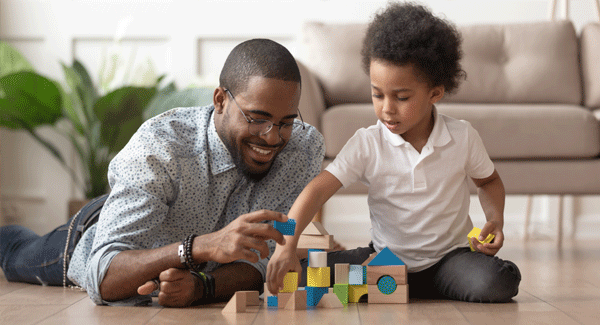Parents: Make Time for Yourselves
Personal time is important for parents of children with juvenile arthritis.
Being a parent, especially these days dealing with added stressors from the coronavirus (i.e, working from home while caring for your child or helping them with schoolwork), takes a lot of time, energy and sacrifice. Factor in the extra responsibility of having child with arthritis, and life is even more likely to become out of balance and hard to manage. That’s why it’s so important for parents of children with arthritis to learn how to prioritize their own personal time.
Why Personal Time Matters
Personal time is the one thing that many parents fail to list when detailing their priorities for a day or week. Without personal time, it’s easy to wear yourself too thin when you have a child with a chronic disease, explains Renee Thomas, a support and educational rights volunteer facilitator for the Arthritis Foundation’s Northeastern Ohio office.
“I think it is a natural instinct,” she says. “Most parents sacrifice for their child and try and do without to make their child’s life better. Certainly, with a child with a disability you work harder to try and make everything better for them.”
Thomas knows. Her daughter Brooke, 23, was diagnosed with polyarticular juvenile idiopathic arthritis at age 7. She says sacrificing important time for yourself can be detrimental to both you and your child. It can overwhelm you, stress you out and take a toll on your ability to care for your child as you would like.
What’s more, not taking time for yourself can ultimately affect how well you care for your child. “ I worry about parents’ mental health as much as I do children’s, because it usually rolls downhill,” says John Chaney, PhD, Professor at Oklahoma State University. “You must take care of yourself first before you can really be available to help your child to work through any of these challenges.
But there is hope. You can find the right balance and make some time for yourself without the guilt. Thomas offers these tips:
Tips for Personal Time
Give yourself permission. It's a natural inclination to put your child's needs above your own. But give yourself permission to put yourself first occasionally. “Sometimes [your child] might not be happy to go and sit with a different person for the day. Our job isn’t always to make our child happy. Your child doesn’t have to be happy all the time. That’s OK,” says Thomas.
Create structure. Make a plan for “me-time” and slot it into your regular schedule. If not, the details of day-to-day activities or matters that seem urgent can take over. “I think you really have to structure things,” Thomas says. “This is my time, this is mom and dad time … let your kids see that these times are important.” If factoring “me-time” seems impossible – start little by little. Even 10 minutes a day to set aside time for yourself can make a big impact in your mental health.
Sign them up for activities. Getting your kids involved in developing their own activities outside of school is also a great idea. Not only is this good for them socially, it can afford you an hour or two of time to yourself to take care of your needs. You may be surprised at a new passion or talent that your child develops. During the pandemic, in person activities are put on hold, but there are plenty of online activities you can sign your child up for – including virtual playdates, online learning platforms and even dance lessons.
Keep an activity box. Sheltering in place and social distancing means that your child’s regular activities may be put on hold or you won’t be able to hire a babysitter for a night out. Keep kids busy when you need some “me time” by keeping a collection of toys and solo activities for your child on hand. Fill a box with activity books, craft supplies – anything that can keep your child busy while you take a few minutes for yourself. Switch out items weekly so kids don’t get bored.
Meal prep. With kids at home, there’s even less time available to devote to cooking and meal planning. Simplify your life by meal prepping weekly – chopping veggies, keeping ready-made snacks and frozen veggies, soups, stews on hand – to save yourself the headache of making something new every night. You may also want to break out the crock pot for a hearty homecooked meal with minimal prep and cooking time.
Use your time wisely. Find something that fulfills your personal and emotional needs, other than parenting. That can be anything from taking regular walks to signing up for virtual painting classes to practicing meditation. Also, if you're in a relationship, spend some time with your partner. Devoting time to fostering your relationship can provide you with a much-needed shoulder to lean on when things get stressful. During the pandemic, it’s even more important to find time to fulfill your personal needs to help soothe anxiety. For more stress-busting tips for the whole family, click here.
While it may take hard work to give yourself permission to take personal time and the persistence to get it, it's important for parents’ personal health. Feeling happy and healthy can make it easier to deal with the stresses that come with managing daily life with chronic illness in your family.
Stay in the Know. Live in the Yes.
Get involved with the arthritis community. Tell us a little about yourself and, based on your interests, you’ll receive emails packed with the latest information and resources to live your best life and connect with others.


